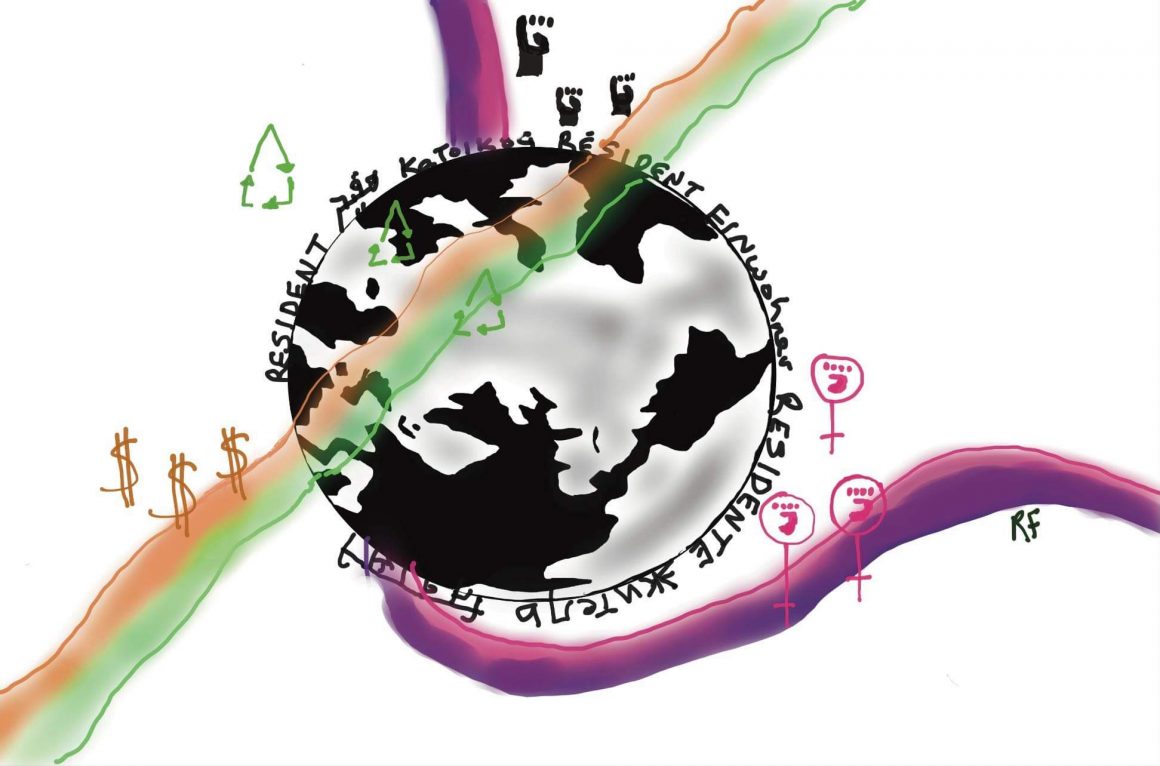The modern notion of “citizenship” is connected to the nation state and has emerged to a large extent from the struggle for civic rights in Western societies. In recent years the term “citizenship” or “citizen” is occasionally used in a broader sense, informally as in “citizen of the world”, or even formally, as in “citizen of the European Union”. Can there be, however, citizenship concepts, attitudes and arrangements vis-à-vis quasi-sovereign or supranational institutions, at the regional (e.g. EU) or global (e.g. the UN) level, or is the term citizen/citizenship used metaphorically in such cases?
Let us zoom in to some key aspects of citizenship to explore whether they also apply to institutions outside the nation state. The main reference document, on which often the oath of citizenship and/or of public service is taken is a state’s constitution. Is there such a thing in the UN / global context and in the regional / EU context? Actually, the founding document of the UN is the UN Charter, which has a Gospel-like aura, even if it is often respected in the breach. Together with the Charter, the Universal Declaration of Human Rights completes the core constitutional duo of the post-World War II global governance system. The EU may have no concise constitution as such (attempts to get one have failed, as of now), but its “founding agreements”, including the Rome, Maastricht and Lisbon Treaties, play this role and are a clear reference for its citizens.
A creation story or “founding myth” is also part of the shared heritage that determines citizenship at the nation state level. It can be the liberation struggle against a colonial power, or the fight for the rights of the people against a monarchy or an oligarchy. The epic of World War II plays that role for both the UN and the EU, as their creation was part of the effort to avoid any repetition of such carnage and destruction, in the world as a whole and on the European continent, respectively.
A sense of identity and solidarity is another key aspect of citizenship at the state level. But is it also evident at regional and global level? The answer is positive, if one considers the “EU Citizenship package” that includes various legal texts and administrative provisions in support of the rights of people having the citizenship of any and all EU countries, along with a set of funding programmes that distribute money to farmers, artists, researchers and numerous other groups across the EU. The various international human rights instruments, the work of institutions like the Human Rights Council and the UN High Commissioner for Refugees, as well as multilateral funding mechanisms of the broader UN system, like UNDP, UNICEF, the World Bank, IFAD, the Green Climate Fund, etc. also play the same role at the global level, even if within much narrower financial margins.
Another level of governance, which has recently emerged but cannot be ignored, is that of cyberspace. Large numbers of people, young people in particular, spend large parts of their time / of their lives online. The term “cyber citizen” or “digital citizen”§ has acquired de facto meaning and should be taken into account too when talking about citizenship beyond the nation state. What is the source of legitimacy and “sovereignty” in cyberspace? No founding document as such, no unifying founding myth either. One has to go to individual “cyber kingdoms” to get the founding documents and narratives of digital superpowers such as Google, Microsoft, Facebook/Meta or X (formerly known as Twitter), with many more smaller “princedoms” and communities of all sorts offering a sense of identity and solidarity to like-minded groups of people.
In conclusion, human beings today have to grapple with many overlapping identities and citizenships, which can be seen as complementary, unless something goes wrong in the relations among the various levels of governance each one of them is based. While state-level citizenship remains the most defining for an individual, not least because of nationality documents and enforcement arrangements maintained at that level, other citizenships or “meta-citizenships” increasingly become the “locus” of loyalty and engagement. No Education for Democracy (EfD) curriculum, even if controlled by state authorities as part of national education systems, can ignore the emerging broader notions and practices of citizenship at regional, global and digital level. They have to be taken into account and harmonized to achieve the purported shared goal of individual and societal well-being, human security and resilience across all levels and borders.
_________________
* First published on the Agora platform of the DEMOCRAT Project; original can be found here:https://blogs.democrat-horizon.eu/2024/01/14/a-global-perspective-on-responsible-democratic-citizenship/ Based on a presentation made by Dr. Georgios Kostakos at the ECPR General Conference 2023, Charles University, Prague, 7 September 2023.
§ See previous blog post on the DEMOCRAT project website entitled “Embracing the Digital in Democratic Citizenship Education”, by Janette Hughes, Jennifer A. Robb & Molly Gadanidis. Interesting that the apparently very relevant web site https://www.cybercitizenship.org/ does not seem to have any human names associated with it…



